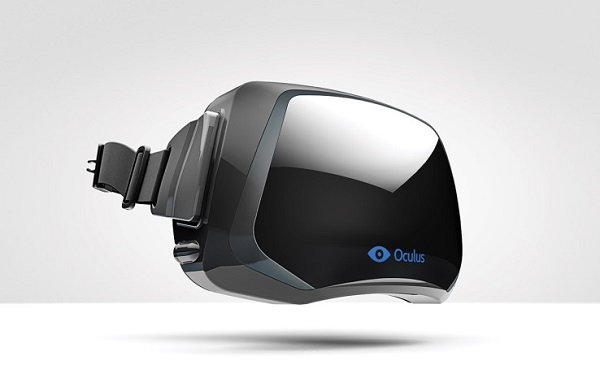After the company behind virtual reality headset Oculus Rift, Oculus VR, was sold to Facebook for $2 billion, we ask what it means for the technology industry.
For the average person, the figure of $2 billion is not an amount of money to be sniffed at. That’s a sizeable chunk of change that could probably buy a medium sized principality, all of the homes in a city and still have more than enough money left over to buy a few fleets of jumbo jets. Yet, while few people won’t dispute the grand size of this money, many might question just how it’s being spent and with Facebook’s recent $2 billion acquisition of Oculus VR, the team behind the Oculus Rift virtual reality headset, shaking things up more than James Bond’s famous drink, the future of the tech industry is changing before us.
1. Virtual Reality in Your Real-Life Reality
Virtual reality headsets, for the most part, are ugly. They are giant, blocky and general ill-fitting (especially for the specs wearing people amongst the population) and that’s likely a strong reason why VR headsets will not take over the globe in high-tech, Google Glass-rivalling eyewear revolution. However, what Facebook’s buyout of Oculus VR does mean is that there is now officially a market and a market brings competition and competitors to both fend off and co-exist with. We’ve already seen this with the newly announced Project Morpheus from Sony and Microsoft are also rumoured to be working on a VR effort of their own, so it’s only a matter of time before we start seeing the tech implemented even more into our day to day where virtual or not, VR will become unavoidable.
2. ‘Now With Oculus Rift Support!’
Another key concern for those both for and against virtual reality headsets is that its uses will become gimmicks; laughable uses for the souped up technology that powers them. Especially in Oculus Rift’s case as it powers gaming experiences and as we’ve seen from motion control, there may soon become a tacked on feel about things, with developers grabbing headlines with VR use, whilst also (possibly) skimping out on other, more required features, to make the tech work.
3. $2 Billion And a Whole Lots of Indies
Don’t let the reports of Minecraft creator, Markus “Notch” Persson distract from the truth; that indie developers love Oculus Rift. In fact, they love virtual reality in general, with Sony also saying that its easier to get indie developers on board with VR than it is to convince big name publishers. What this means in the grander scheme of things is more games. More original games. More quirky games that see you play as a multi-coloured blob named ‘Bloop’ and have to visit every planet in the galaxy. Ok, so that game would be a little far-fetched, but there’s no reason why all of the weird and wonderful titles that wouldn’t usually get backing from investors couldn’t make a name from themselves on Oculus Rift. While that’s great news for gamers, Facebook’s well stocked coffers and a thirst for new gaming experiences (it has become apparent that the social media site can’t survive on Zynga games and social poker games forever) mean that it’s great news for indie developers too.
4. The Good, The Bad and The Gimmicky
As mentioned before, there is a strong concern that the virtual reality tech that Oculus Rift and the other headsets like it offers, will become used for gimmicky purposes. While that doesn’t have to be the case, the truth in that is already becoming apparent, with several announcements since Oculus VR’s sale to Facebook suggesting that the platform could have to fight hard not to become too overrun with shovelware (games and content that aren’t very good). One key example of this threat is that Facebook is now available via Oculus Rift, something that likely appeases the company’s new buyers, but deters from the fact that Oculus Rift was set out to be a dedicated gaming device. What also detracts from that is that the British supermarket chain, Tesco, are working on putting a version of their stores onto Oculus Rift, allowing the user to browse through the shop as if they were in a real-life shopping experience. No one needs to us VR to buy their groceries, they just want to pilot ships and fight in battles with swords that seem attached to their very hands, but it will certainly be an uphill battle for Oculus VR (and Facebook) to stop that from happening.
5. Kickstart a Revolution
As hard as it is to believe, just two short years ago, Oculus Rift was the project that Oculus VR were looking to fund via Kickstarter, the crowdfunding service. They asked for $1 million to fund their project and raised just over $2 million, which, in comparison, is less than 1% of the $2 billion that Facebook just forked out for the whole shebang. The sale only helps Kickstarter’s case; that crowdfunding is a viable monetisation method for those looking to make a game, a game platform or even fund a new tech device that Kickstarts a technological revolution in the process.
Be social! Follow Walyou on Facebook and Twitter, and read more related stories Facebook Buy Oculus VR for $2 Billion, Oculus VR Exhibits Crystal Cove Prototype aka Oculus Rift 2.0











